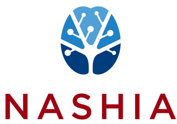Nebraska Brain Injury Advisory Council Toolkit
Welcome to the Nebraska Brain Injury Advisory Council (BIAC)! The mission of the Council is to engage, integrate, and inspire brain injury stakeholders to help achieve the Statewide Vision for Brain Injury Policies and Services. The Council is sponsored by the Nebraska Department of Education (NDE), Office of Vocational Rehabilitation (VR). It is a voluntary advisory council, and its members are appointed by the Nebraska VR Director and the Commissioner of Education. The Council meets quarterly, usually in March, June, September and December. Meetings are open to the public.
To maximize your time and efforts with the Council, we created this comprehensive, fully accessible, person-centered Guide to introduce and train new members. The goal is to give you the supports necessary to fully engage and help to guide initiatives that support Nebraskans with brain injury.
How to Use this Toolkit:
The Council Toolkit is divided into modules, some of which are introductory, others are created to enhance learning after orientation to the Council. Feel free to view all the modules, but we know that you will not be able to do that all in one sitting. We are aware of the effort and time commitment involved in completing the whole Guide. The modules are in the order that the Council recommends accessing them, starting with the basics, and finishing with the Mentoring modules, for seasoned Council members.
We have noted the estimated time needed to review/complete each module. You are free to review the modules at your own pace. There are also a number of additional resources, links and other useful tools located on our website.


This toolkit was prepared by the National Association of State Head Injury Administrators Maria Crowley, MA, CRC, Judy L. Dettmer, Anastasia Edmonston, MS, CRC, and Susan L. Vaughn, MEd
This project was supported, in part by grant number 90TBSG0036-02-00, from the U.S. Administration for Community Living, Department of Health and Human Services, Washington, D.C. 20201. Grantees undertaking projects under government sponsorship are encouraged to express freely their findings and conclusions. Points of view or opinions do not, therefore, necessarily represent official Administration for Community Living policy.